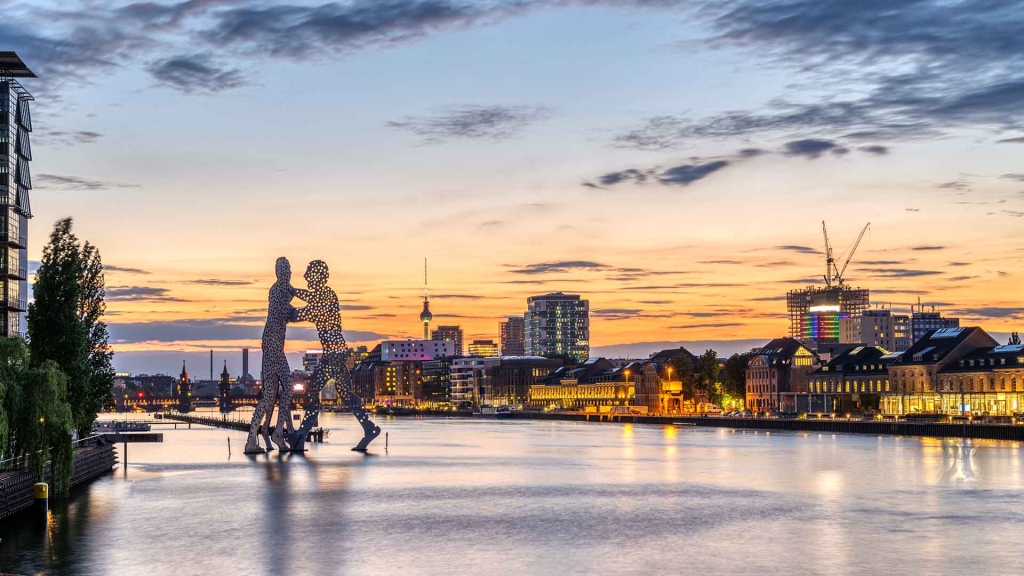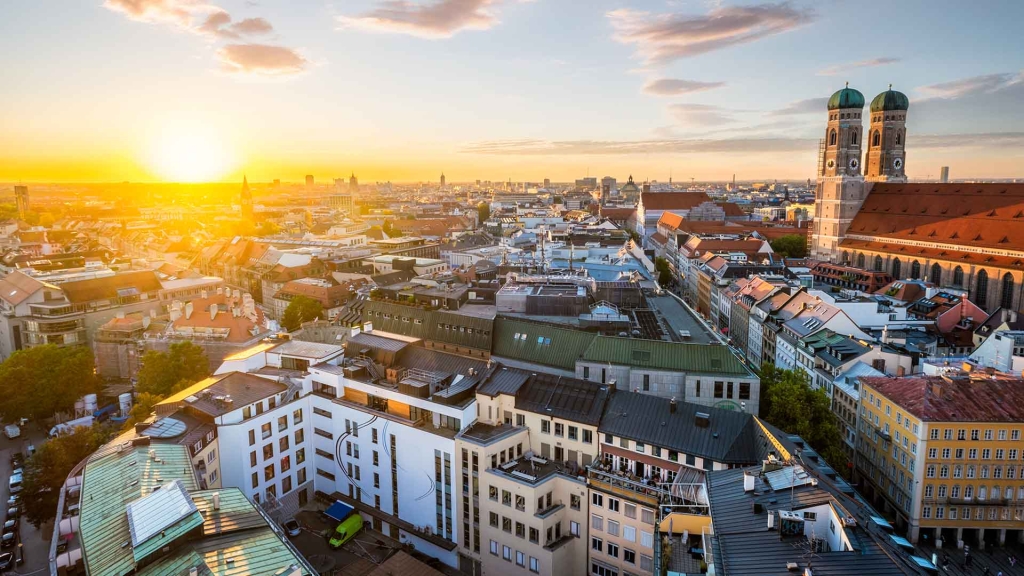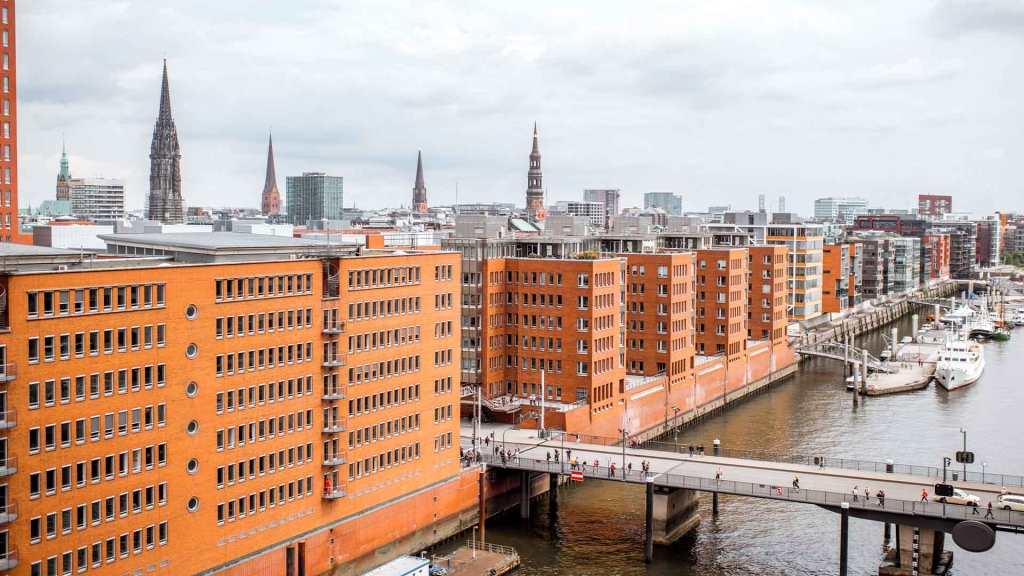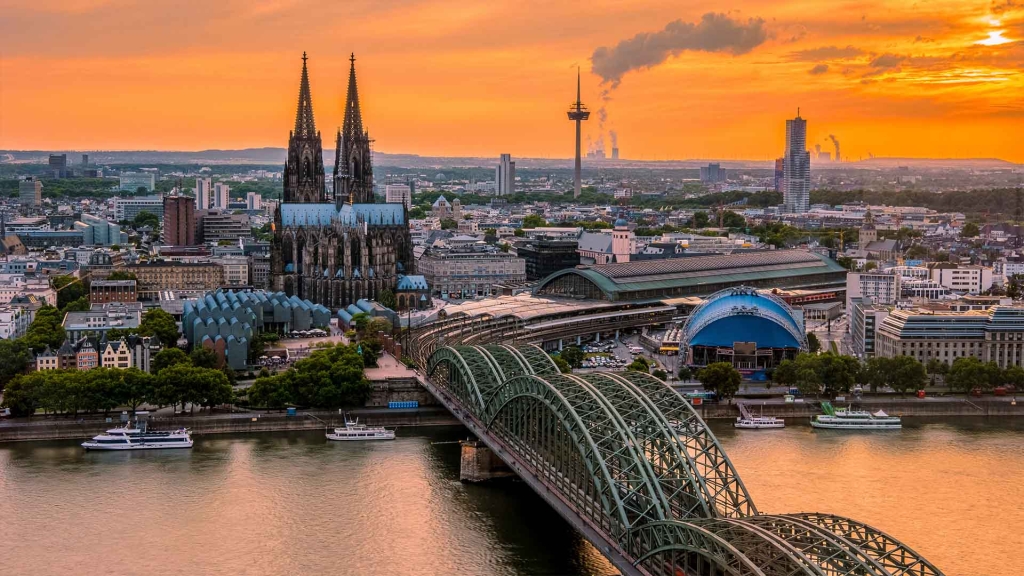Best German Cities to Live: Where to Find Jobs, Culture, and Affordability
- Best German Cities to Live: Where to Find Jobs, Culture, and Affordability
- FAQ: Best Cities To Live in Germany
- Which city is the best to live in Germany?
- What is the most livable city in Germany?
- What are the happiest cities to live in Germany?
- Which is the safest city to live in Germany?
- Which city has the best salary in Germany?
- Where do the richest live in Germany?
- Which German city has the lowest cost of living?
- Which is the friendliest city in Germany?
- Where do the most foreigners live in Germany?
- What is the most adventurous city in Germany?
- What is the most sustainable town in Germany?
- Are people who live in Germany happy?
- Which German city has the lowest cost of living?
- What is the number 1 city in Germany?
- Which city has the most job opportunities in Germany?
The top 5 best German cities to live have been carefully selected by KUMMUNI based on job opportunities, quality of life, affordability, and infrastructure. Each city offers unique advantages, making them ideal choices for different lifestyles and career paths.
- Berlin stands out as a dynamic hub for tech startups, creatives, and young professionals. Its rich cultural scene, combined with affordable living compared to other major capitals, makes it a great place for those seeking both career growth and a vibrant social life.
- Munich offers a high standard of living with exceptional job opportunities in finance, engineering, and the automotive industry. Despite its higher cost of living, Munich’s safety, excellent schools, and proximity to the Alps make it perfect for families and professionals with higher incomes.
- Hamburg, Germany’s largest port city, is renowned for its strong job market in logistics, trade, and media. With its scenic waterfront, green spaces, and family-friendly atmosphere, Hamburg offers a balanced lifestyle for both professionals and families.
- Frankfurt is a global financial hub, making it a top destination for banking and finance professionals. Its central location, excellent infrastructure, and international community create an ideal environment for expats and families looking for a dynamic and well-connected city.
- Cologne brings together history, culture, and a thriving media industry. Known for its relaxed atmosphere and affordability, Cologne is especially appealing to young professionals, students, and creatives who are drawn to its vibrant cultural scene and affordable housing options.
Each of these cities offers a unique combination of professional opportunities and lifestyle benefits, making them the top 5 best German cities to live for a variety of individuals and families.

1. Living in Berlin
Average Salary in Berlin
€3,600 gross per month
Cost of Living in Berlin
€1,400–€2,000 per month (depending on location and lifestyle)
- Cold rent for 1-bedroom apartment (city center): €1,000
- Warm rent for 1-bedroom apartment (city center): €1,250
- Cold rent for 1-bedroom apartment (outside center): €750
- Warm rent for 1-bedroom apartment (outside center): €950
- Public Transport: €86 per month
- Internet: €35 per month
Job Market and Employment Opportunities in Berlin
Berlin is a tech and startup hub with many job opportunities in software development, marketing, design, and digital innovation. The creative industry, media, and public services also offer employment possibilities.
Quality of Education in Berlin
Berlin is home to top universities such as Humboldt University and the Free University of Berlin. The city also offers numerous international schools for expats, alongside well-regarded public and private schools.
Healthcare System and Facilities in Berlin
Berlin’s healthcare system is highly developed, with a wide network of public and private hospitals. The quality of care is high, and residents benefit from extensive health insurance coverage, both public and private.
Crime Rate and Safety in Berlin
Berlin is relatively safe, but certain areas (especially around the city center) may experience higher crime rates, particularly for petty theft. However, most residential neighborhoods are safe, and the city has a strong police presence.
Public Transport and Infrastructure in Berlin
Berlin has an excellent public transport system with buses, trams, U-Bahn (subway), and S-Bahn (train) services connecting the entire city. It’s easy to get around, and cycling is also popular due to the city’s flat landscape.
Weather and Climate in Berlin
Berlin has a continental climate with cold winters (averaging -2°C) and warm summers (around 24°C). Winters can be grey and chilly, while summers are pleasant for outdoor activities in the city’s many parks.
Internet Connectivity and Tech Infrastructure in Berlin
Berlin is Germany’s tech capital, with high-speed internet and a growing startup ecosystem. The city offers many coworking spaces, making it ideal for remote workers and digital professionals.

2. Living in Munich
Average Salary in Munich
€4,200 gross per month
Cost of Living in Munich
€1,800–€2,500 per month (depending on location)
- Cold rent for 1-bedroom apartment (city center): €1,300
- Warm rent for 1-bedroom apartment (city center): €1,600
- Cold rent for 1-bedroom apartment (outside center): €1,100
- Warm rent for 1-bedroom apartment (outside center): €1,350
- Public Transport: €60–€100 per month (depending on zones)
- Internet: €30 per month
Job Market and Employment Opportunities in Munich
Munich offers excellent job opportunities in automotive, engineering, finance, and technology. Companies like BMW, Siemens, and Allianz are headquartered here, making it a top destination for professionals in these sectors.
Quality of Education in Munich
Munich is home to top universities, including Ludwig Maximilian University and the Technical University of Munich. There are also several international schools, as well as high-quality public and private schools for families.
Healthcare System and Facilities in Munich
Munich has one of the best healthcare systems in Germany, with top-tier hospitals and healthcare providers. Both public and private health insurance cover the majority of healthcare costs.
Crime Rate and Safety in Munich
Munich is one of Germany’s safest cities, with low crime rates and a secure environment. It’s particularly family-friendly, with excellent public services ensuring high safety standards.
Public Transport and Infrastructure in Munich
Munich has an extensive and efficient public transport system, including U-Bahn, S-Bahn, buses, and trams. The city is well-connected, and the airport offers easy access to international destinations. Munich is also a very bike-friendly city.
Weather and Climate in Munich
Munich has cold, snowy winters (around -3°C) and warm summers (up to 25°C). Its proximity to the Bavarian Alps makes it a great location for winter sports, and the summers are ideal for outdoor activities in the parks and nearby lakes.
Internet Connectivity and Tech Infrastructure in Munich
Munich has excellent internet infrastructure, with fast and reliable connections. The city also offers numerous coworking spaces, supporting its growing tech and startup scene.

3. Living in Hamburg
Average Salary in Hamburg
€3,800 gross per month
Cost of Living in Hamburg
€1,400–€2,000 per month (depending on location)
- Cold rent for 1-bedroom apartment (city center): €1,000
- Warm rent for 1-bedroom apartment (city center): €1,300
- Cold rent for 1-bedroom apartment (outside center): €850
- Warm rent for 1-bedroom apartment (outside center): €1,100
- Public Transport: €89 per month
- Internet: €30 per month
Job Market and Employment Opportunities in Hamburg
Hamburg is Germany’s largest port city, making it a hub for logistics, shipping, and trade. It also has a thriving media industry, with several large corporations and media houses, including Der Spiegel.
Quality of Education in Hamburg
Hamburg offers excellent educational facilities, including public and private schools, as well as several international schools for expats. The University of Hamburg is one of the largest in Germany and is well-regarded for its research programs.
Healthcare System and Facilities in Hamburg
Hamburg’s healthcare services are top-notch, with a wide range of public and private hospitals offering general and specialized care. Residents benefit from comprehensive health insurance coverage.
Crime Rate and Safety in Hamburg
Hamburg is generally safe, although areas near the Reeperbahn may have higher crime rates, particularly at night. Most residential neighborhoods are secure, with a strong police presence across the city.
Public Transport and Infrastructure in Hamburg
Hamburg has a well-developed public transport system, including buses, U-Bahn, S-Bahn, and ferries. The city’s infrastructure is excellent for commuters, and it’s also a major international trade hub.
Weather and Climate in Hamburg
Hamburg has a maritime climate, with frequent rain and cool temperatures. Winters are mild (around 1°C), while summers are cool (around 22°C). Despite the rainy weather, Hamburgers enjoy outdoor activities by the waterfront.
Internet Connectivity and Tech Infrastructure in Hamburg
Hamburg has fast and reliable internet, and the city is expanding its tech scene with numerous coworking spaces and tech hubs. It’s an attractive city for digital professionals and media specialists.

4. Living in Frankfurt
Average Salary in Frankfurt
€4,000 gross per month
Cost of Living in Frankfurt
€1,500–€2,200 per month (depending on location)
- Cold rent for 1-bedroom apartment (city center): €1,200
- Warm rent for 1-bedroom apartment (city center): €1,500
- Cold rent for 1-bedroom apartment (outside center): €900
- Warm rent for 1-bedroom apartment (outside center): €1,200
- Public Transport: €90 per month
- Internet: €35 per month
Job Market and Employment Opportunities in Frankfurt
Frankfurt is Germany’s financial hub, offering excellent job opportunities in banking, finance, and consulting. It’s home to the European Central Bank and Deutsche Bank, making it ideal for professionals in these sectors.
Quality of Education in Frankfurt
Frankfurt offers great educational options, including international schools for expats. Goethe University is one of the top research institutions in Germany. The city also has a strong network of public and private schools for families.
Healthcare System and Facilities in Frankfurt
Frankfurt’s healthcare system is well-developed, with numerous hospitals and specialized care centers. Both public and private health insurance provide comprehensive coverage for residents.
Crime Rate and Safety in Frankfurt
While Frankfurt has a moderate crime rate due to its status as a large financial center, most residential areas are safe. Petty crime is more common around the train station and financial district.
Public Transport and Infrastructure in Frankfurt
Frankfurt has an efficient public transport system, with U-Bahn, S-Bahn, trams, and buses connecting the city. The international airport is one of the busiest in Europe, making the city a major travel hub.
Weather and Climate in Frankfurt
Frankfurt has a temperate climate with cold winters (around 0°C) and warm summers (up to 25°C). The city experiences occasional rain, but overall the weather is mild throughout the year.
Internet Connectivity and Tech Infrastructure in Frankfurt
Frankfurt is a key European data hub, with excellent internet services. The city also offers plenty of coworking spaces, making it an attractive place for digital and finance professionals.

5. Living in Cologne (Köln)
Average Salary in Cologne
€3,500 gross per month
Cost of Living in Cologne
€1,200–€1,700 per month (depending on location)
- Cold rent for 1-bedroom apartment (city center): €1,000
- Warm rent for 1-bedroom apartment (city center): €1,300
- Cold rent for 1-bedroom apartment (outside center): €850
- Warm rent for 1-bedroom apartment (outside center): €1,100
- Public Transport: €85 per month
- Internet: €30 per month
Job Market and Employment Opportunities in Cologne
Cologne is a hub for media, creative industries, and trade fairs. The city has a thriving media scene, with large companies like RTL and WDR, making it ideal for professionals in media and creative fields.
Quality of Education in Cologne
Cologne is home to the University of Cologne, one of the oldest and most prestigious universities in Germany. The city also has numerous international schools, along with well-regarded public and private schools for families.
Healthcare System and Facilities in Cologne
Cologne has a robust healthcare system, with public and private hospitals offering excellent medical care. Residents benefit from Germany’s comprehensive health insurance system.
Crime Rate and Safety in Cologne
Cologne is generally safe, although some areas near the city center have higher crime rates, especially during events like the annual Carnival. Residential areas are secure, and the city has a visible police presence.
Public Transport and Infrastructure in Cologne
Cologne has a reliable public transport system, including trams, buses, and U-Bahn services. The city is well-connected to nearby cities like Düsseldorf and Bonn, making it convenient for commuters.
Weather and Climate in Cologne
Cologne has mild winters (around 1°C) and warm summers (up to 23°C). The city experiences moderate rainfall throughout the year, but overall the climate is comfortable for most outdoor activities.
Internet Connectivity and Tech Infrastructure in Cologne
Cologne has fast and reliable internet services and is developing its tech infrastructure. Coworking spaces and tech hubs are widely available for professionals in media and creative industries.
FAQ: Best Cities To Live in Germany
Which city is the best to live in Germany?
The best city to live in Germany depends on individual preferences. Cities like Munich, Berlin, and Hamburg are highly regarded for their quality of life, cultural offerings, and economic opportunities. Munich is known for its high standard of living and economic strength, while Berlin offers vibrant cultural and social scenes. Hamburg combines economic opportunities with a high quality of life.
What is the most livable city in Germany?
Munich often ranks as the most livable city in Germany due to its high quality of life, excellent public services, and strong economy. The city offers a good balance of work and leisure, low crime rates, and beautiful surroundings.
What are the happiest cities to live in Germany?
Cities such as Munich, Freiburg, and Heidelberg are often considered among the happiest in Germany. They offer high living standards, good environmental quality, and strong community spirit. Freiburg is noted for its environmental initiatives and quality of life.
Which is the safest city to live in Germany?
Munich is frequently cited as the safest city in Germany, with low crime rates and a strong sense of security. Other cities with high safety ratings include Heidelberg and Regensburg, known for their low crime rates and peaceful environments.
Which city has the best salary in Germany?
Frankfurt is known for offering some of the highest salaries in Germany, particularly in the financial sector. The city is a major financial hub and offers competitive wages across various industries, contributing to its high average salary levels.
Where do the richest live in Germany?
The richest individuals in Germany often reside in cities like Munich, Hamburg, and Düsseldorf. These cities have high property values, exclusive neighborhoods, and are economic powerhouses, attracting wealthy residents.
Which German city has the lowest cost of living?
Cities like Leipzig, Dresden, and Halle are known for having a lower cost of living compared to major cities like Munich and Frankfurt. These cities offer affordable housing and lower general expenses while still providing a high quality of life.
Which is the friendliest city in Germany?
Cities like Leipzig and Freiburg are often regarded as some of the friendliest in Germany. They are known for their welcoming atmosphere, strong community spirit, and active local engagement, making them popular among both locals and newcomers.
Where do the most foreigners live in Germany?
Berlin and Frankfurt are cities with large foreign populations. Berlin is known for its international community and diverse cultural scene, while Frankfurt’s status as a financial hub attracts expatriates from around the world.
What is the most adventurous city in Germany?
Berlin is considered the most adventurous city in Germany, known for its vibrant nightlife, diverse cultural events, and dynamic arts scene. The city offers a wide range of activities and experiences for those seeking excitement and exploration.
What is the most sustainable town in Germany?
Freiburg is recognized as one of the most sustainable cities in Germany. It is known for its commitment to environmental sustainability, green energy initiatives, and efforts to promote eco-friendly living.
Are people who live in Germany happy?
Overall, people living in Germany report high levels of happiness due to strong social support systems, good healthcare, and a high standard of living. Germany’s well-developed infrastructure and quality of life contribute to residents’ overall satisfaction.
Which German city has the lowest cost of living?
Cities like Leipzig, Dresden, and Halle generally have the lowest cost of living in Germany. They offer more affordable housing and lower overall living expenses compared to larger cities like Munich or Hamburg.
What is the number 1 city in Germany?
Munich often ranks as the number one city in Germany for its high quality of life, strong economy, and cultural offerings. It is consistently rated highly in various quality-of-life indices and surveys.
Which city has the most job opportunities in Germany?
Frankfurt and Munich are among the cities with the most job opportunities in Germany. Frankfurt, as a major financial center, offers numerous positions in finance and business, while Munich has a strong economy with opportunities across various industries.
How informative was this article?
Click on a star to rate it!
We are sorry that this post was not useful for you!
Let us improve this post!
What is missing in the article?















